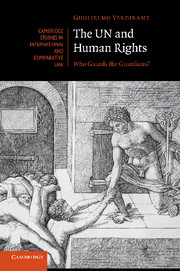Book contents
- Frontmatter
- Contents
- Foreword
- Acknowledgements
- Abbreviations
- Table of cases (international)
- Table of cases (national)
- Table of legal instruments
- Introduction
- 1 Concepts and definitions
- 2 Human rights obligations of international organisations
- 3 International institutional responsibility
- 4 UN relief and development operations
- 5 UN peacekeeping operations
- 6 International administrations
- 7 Implementation of UN sanctions
- 8 Accountability
- Conclusions
- Bibliography
- Index
- References
3 - International institutional responsibility
Published online by Cambridge University Press: 07 October 2011
- Frontmatter
- Contents
- Foreword
- Acknowledgements
- Abbreviations
- Table of cases (international)
- Table of cases (national)
- Table of legal instruments
- Introduction
- 1 Concepts and definitions
- 2 Human rights obligations of international organisations
- 3 International institutional responsibility
- 4 UN relief and development operations
- 5 UN peacekeeping operations
- 6 International administrations
- 7 Implementation of UN sanctions
- 8 Accountability
- Conclusions
- Bibliography
- Index
- References
Summary
Introduction
In 2000 the ILC decided to include the responsibility of international organisations in its programme of work, appointing Professor Giorgio Gaja as Special Rapporteur in 2002. Since then the work of the Commission has proceeded at a steady pace, leading to the adoption of a draft set of articles.
Although the rules on state responsibility offered a starting point and a framework of reference, the ILC was faced with more than a few new challenges. Some states observed at the outset that there was ‘no customary international law on the responsibility of international organisations’ and that institutional practice was often unavailable. The body of case law on international institutional responsibility had traditionally been quite thin, but, shortly before the ILC began its work, domestic and international jurisprudence on international institutional law entered into a phase of rather idiosyncratic expansion, making the codification of international law in this area more of a challenge.
- Type
- Chapter
- Information
- The UN and Human RightsWho Guards the Guardians?, pp. 91 - 143Publisher: Cambridge University PressPrint publication year: 2011

